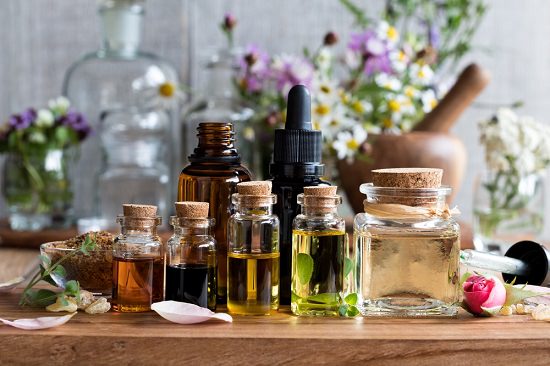Read to find out what is the best essential oil blend for fever and how you use it to ease down the illness. Besides, learn other remedies for fever too!
Reasons for Fever
The normal temperature of the human body is 98.6 degrees Fahrenheit or 37 degrees Celsius. A temporary increase in body temperature is a fever. It is indicative of some infection or underlying illness which your body is fighting against. Fever can develop due to inflammation in the body, immunizations and vaccines, hormone disorders, heat stroke, cancer, blood clots, and certain medications. Additional symptoms of fever include:
- Chills and shivering
- Hot or flushed skin
- Body pain
- Loss of appetite
- Dehydration
- Fatigue
- Dizziness
- Sweating
- General weakness
There are many remedies for fever that you can do to ease the illness. But essential oils can help too. Learn about the best essential oil blend for fever in the article below.
Essential Oil Blend for Fever
Essential oils are extracted from plants. They are highly concentrated oils and contain potent plant compounds that have healing properties. They have been popular as natural remedies for diverse medical conditions in traditional medicine systems.
You can inhale essential oils via diffusion, massage them into your skin, use it to disinfect the air within your house, or add it to bathwater. Use these oils only after diluting them with carrier oils like coconut, sweet almond, and grapeseed oil. The general dilution is 2-3 drops of essential oil per 1 teaspoon of carrier oil.
The best essential oils to bring down a fever are lemon, eucalyptus, tea tree, lavender, basil, peppermint, frankincense, and black pepper.
1. Eucalyptus
Eucalyptus has cooling properties that help improve blood circulation which eases pain and inflammation. It also clears nasal congestion and has antibacterial, antiviral, and antifungal properties.
2. Basil
Basil has antipyretic, antibacterial, antiviral, anti-inflammatory, and analgesic properties.
3. Peppermint
Peppermint has antipyretic, anti-inflammatory, antibacterial, antiviral, and analgesic properties.
4. Lemon
Lemon acts as an antipyretic, decongestant, antioxidant, antibacterial, antiviral, and antifungal agent.
5. Frankincense
Frankincense is an immune stimulant, disinfectant, anti-inflammatory, antiseptic, antibacterial, and antioxidant.
6. Lavender
Lavender helps relieve stress, promote sleep and has calming and antipyretic properties.
7. Black Pepper
Black pepper has anti-inflammatory, decongestant, and detoxifying properties.
A blend of these oils works effectively to bring down a fever as they have unique properties that treat the fever.
Essential Oil Blend for Fever
Recipe 1
3 tbsp coconut oil
8 drop peppermint oil
7 drops frankincense oil
6 drops lemon oil
Recipe 2
3 tbsp coconut oil
7 drops lemon oil
7 drops eucalyptus oil
4 drops peppermint oil
2 drops basil oil
Precaution
Massage the blended essential oils onto your chest, stomach, bottoms of your feet, and the back of your neck 2-3 times a day. Use organic, pure, high-quality essential oils. Always do a patch test to check for allergic reactions before using any essential oil.
Other Remedies For Fever
You can treat a mild fever of less than 101 F with home remedies. A general advisory is to drink plenty of fluids and get sufficient rest. Avoid alcohol and caffeinated beverages. Drink the bone broth as it hydrates and boosts immunity. Taking a regular bath or a sponge bath using lukewarm water or using cold compresses on the forehead will help bring a fever down. Sucking on popsicles helps bring the temperature down. Wear light clothing to keep your body cool. You can take over-the-counter drugs like aspirin, acetaminophen, and ibuprofen.
Drinking small doses of willow bark tea, chamomile tea, basil tea, ginger, or linden tea several times a day are natural remedies to treat a fever. Massage a few crushed garlic cloves mixed in a tablespoon of olive oil into the soles of your feet to help break a fever. A couple of washcloths soaked in apple cider vinegar and placed on the forehead and stomach also effectively reduce fever.
When to Seek Medical Help
Seek medical help if your fever is 103 F (39.4 C) or higher and if it persists for more than 2 days and doesn’t come down with home remedies. A trip to the doctor is warranted if the fever is accompanied by severe headache, skin rash, stiff neck, mental confusion, convulsions or seizures, recurrent vomiting, abdominal pain, throat swelling, pain during urination, chest pain, breathing problems, or unusual sensitivity to bright light. If you have a weak immune system and run a fever then consult your doctor immediately.



